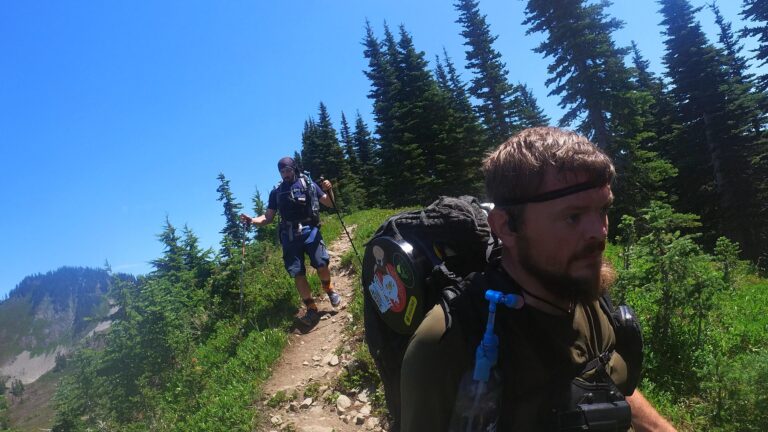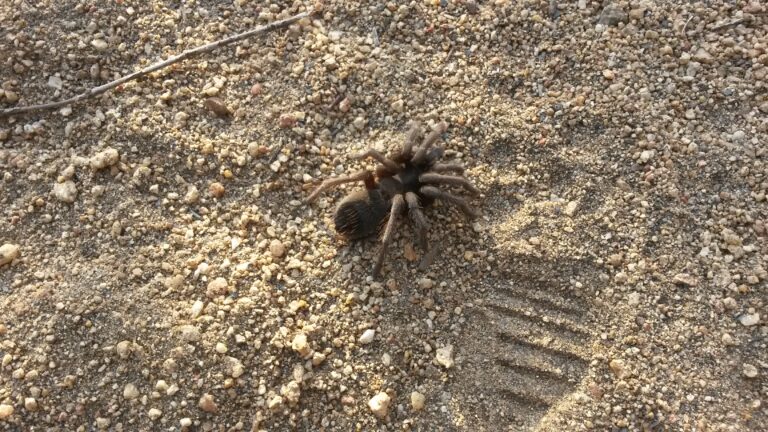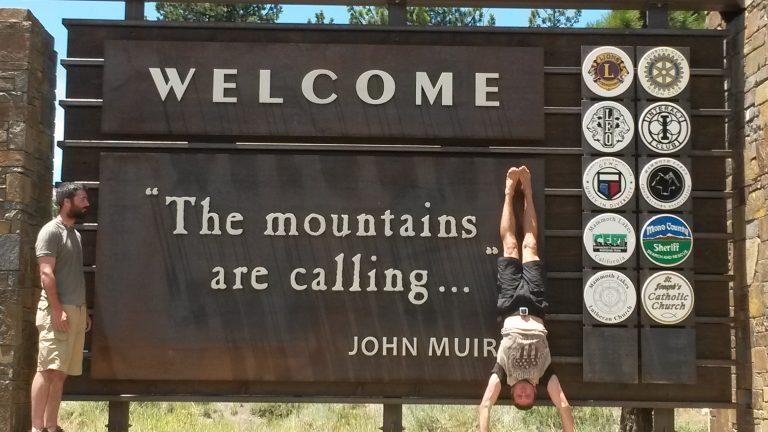So I was going to start ranting on how I thought the Leave No Trace idea was the easiest thing to understand, and that it did not require 7 parts. I was going to give you my opinion on how only complete and utter morons needed the ‘Leave No Trace’ concept broken down into 7 rules in order to not cause a problem for the environment.
I was going to do that….
Then I actually read the 7 rules, and they’re all important. It’s all fundamental stuff that has been rooted in my backpacking experience for years now, and I honestly think we ought to be discussing this more often.
These principles are all interpreted a little differently by everyone, so here’s my take.
LNT Principle 1. Plan Ahead and Prepare.
I have planned hikes alongside Epic for so long that it feels weird not to check a million things before going out, even on just a day hike. The benefit of doing intensive planning months ahead of time, in my opinion, is that you get a chance to see just how badly things could go if you hadn’t stumbled across key bits of information early. For example, finding out that a particular hostel is closed due to construction, or that a post office won’t be operating at the time you expect to arrive, or learning at the last second that your alcohol stove isn’t allowed where you are going. You should always take the time to research where you are going, and make sure you have what you need and are following local regulations, but these experiences really drive the point home.
LNT Principle 2. Travel and Camp on Durable Surfaces.
This one at first seems obvious and unnecessary, until you realize how much time you spend finding flat ground for a good tent spot, or how many times you almost fell down a mountain because you stepped on loose soil. I think we all start out looking at the ground in front of us when we are new to hiking, especially when being introduced to rough terrain. We should all remember that instinct when outdoors, not simply for our own safety, but also to keep from wrecking the environment in the pursuit of making our own campsite instead of utilizing the ones already established.
LNT Principle 3. Dispose of Waste Properly.
I see garbage on every trail. It’s depressingly inevitable. I always thought the least of whoever left their trash on the trail, until I saw how easy it was to do just that. Pockets aren’t good enough, because you’re going to end up falling down, or in some awkward position where garbage will come right out of said pockets. Bring ziplock bags, or simply reuse food bags to put your trash in, and then secure that bag somewhere in your pack. Before you leave any place you have stopped, check to make sure you don’t see any little thing out of place that you may have left. When it comes to waste and toilet paper, seriously, don’t settle for a hastily scooped pit. Dig at least 6 inches down and bury things properly. Remember the last time you ran across used toilet paper in the wilderness? Don’t be that person.
LNT Principle 4. Leave What You Find.
I’m guilty of messing with the environment. It’s not something I thought about until I had consistently seen signs of other hikers rearranging things or leaving some seemingly harmless mark on trail. This on its own isn’t the issue, but it can lead to bigger things. You can interrupt animal pathways, transport plant species, or mistakenly alter some historic or culturally significant site. We are all out there to enjoy the environment. Attempting to influence it is not only problematic, but rather counterproductive if we’re trying to temporarily escape civilization anyway.
LNT Principle 5. Minimize Campfire Impacts.
Wildfires, although necessary for the life cycle of plant life, are incredibly dangerous. They will completely rearrange the ecosystem of hundreds of square miles. We can’t do much to prevent fires started by natural causes, but we can absolutely make sure we aren’t starting them ourselves. Nature knows best when fire is appropriate. There is zero excuse for burning down the forest. Only use established fire rings or pits, and make sure there isn’t any flammable debris close by. Keep the fire small, and when you put it out, make sure there is ZERO smoke coming from it before you leave. I usually go through 2 cycles of (pour water, expose bottom coals, pour more water, stir) before I do my final check.
LNT Principle 6. Respect Wildlife.
Respect wildlife because it can and WILL kill you if you don’t. We all carry bear spray for a reason. It’s not just bears and other predators you should watch out for, any large animal can be dangerous. Ask Epic about his moose encounter. Basically just avoid direct contact with wildlife and appreciate it from a distance. And don’t try to feed the animals you see. This will get them used to the presence of humans, and then they will be eating our food and chewing on our equipment. To me, it seems unfair to get the animals even slightly dependent on people for a source of food. It’s also necessary to keep pets from interacting with local wildlife in areas where pets are allowed.
LNT Principle 7. Be Considerate of Other Visitors.
So this one boils down to not upsetting everyone else who’s attempting to enjoy the trail. Some basic courtesy includes yielding to other hikers on trail, making room for pack stock, NOT playing loud music, and making sure you camp away from the trail. Don’t let your behavior be the reason a new hiker decides they didn’t like their first experience. We’re all out here to enjoy the same thing, so try not to ruin it for others.
So I think that about covers it.
Don’t leave a mess, don’t aggravate the local flora and fauna, don’t be a jerk, follow the regulations, and try to have fun.
– Fancy Pantz




